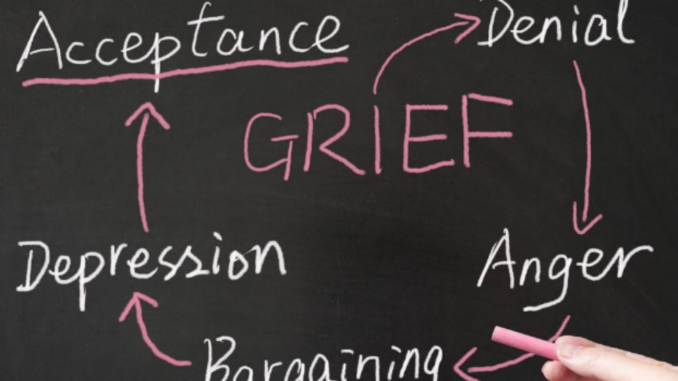
“It’s not like I died when I got sober!”
With transitions from addiction to recovery, we often encounter grief. We might reminisce about what a great time we had with addiction. The good times. The friends. The laughter. We block out the painful experiences and go with the go times.
Grief about losing an addiction is the brick in the bridge most often ignored. What I am talking about comes from my work with thousands of people with addictions and my work with hospice as a volunteer. Spending time with the dying allowed me a window into the phases of grief and what people go through. Kubler Ross, a grief and death expert, was spot on when she outlined the stages of grief in her book On Death and Dying.
She outlined the classic five stages of grief:
- SHOCK/DENIAL: I am in denial that the person died. I can not believe it.
- BARGAINING: I think about things I could have said or done to prevent their death, or things I could’ve said to them before they died.
- ANGER: I am angry about losing a loved one, but take out my anger out on others by being more irritable with them.
- DEPRESSION: I am sad about losing a loved one and that I will not be able to see them again.
- ACCEPTANCE: I accept they are gone and have a spiritual practice around maintaining connection or honoring them while I continue to live.
These were later revised to be phases that people cycle in and out of, with the ultimate goal to reach some sort of acceptance regarding the loss of a loved one. These stages can be applied to any type of loss we encounter in life. From the loss of a job to the loss of a relationship, to entering retirement and losing our working life.
Likewise, this extends to recovery from an addiction. Rather than viewing addiction as simply bad and something to overcome, I started to see the grief process intertwined. People were often in denial that they had a problem; they bargained with the disease; they became angry with it, feeling hopeless about ever beating addiction. Some accepted addiction, seeing the need to seek help and treatment. You see, grief is grief. It is a constant in life that we will all grieve at some point.

I am not immune to grief.
I lost my father to pancreatic cancer when he was 57 years old and my best friend 2 years ago in a mountain climbing accident. I avoided grief, but painful as it is, I too went through the stages. Maybe it was this experience that got me more tuned into how people struggling with addiction would need to grieve the loss of their old using life. It was almost as if the ones that reached acceptance were more ready for treatment, ready for support and ready to treat it. The others might have been stuck in bargaining with the disease one last time, or blaming everyone else and their circumstances for why they used substances.
When I started asking the right questions, I learned that people struggling with addiction all went through the stages of grief whether they wanted to or not. I typically did not see the ones in complete denial of their addiction, but often saw those bargaining with their disease. These people were trying desperately to figure out the magical number of times they could use during the week to maintain control and not get in trouble. I also saw those who were angry at the world and everyone else for their addiction. It was everyone else’s fault.
Or they would simply take the anger out on themselves or others, feeling depressed and powerless. I remember speaking with a family group for partners of people in an addiction program. What was interesting about this family/couple group was that it shifted from a supportive “I am glad you’re sober” group to an anger/resentment group within a few weeks. I think in retrospect that this was based on the fact that people in the program had been clean for about 6 weeks, and now the devoted partners could feel safe enough to reflect on themselves and what impact the addiction had on them and their relationships. This translated into many members viewing the “addicted one” as having enough resources, support and sober time to finally hear their true feelings. Unfortunately these true feelings were about the anger, frustration, resentment, disappointment and hurt they felt from the impact of that person’s addiction.
Then I saw the ones who were sad about having to say good-bye to the one thing that gave them relief; the one thing they could count on with no questions asked. Then I met the lucky ones that seemed to accept it, realizing they needed certain things to maintain their sobriety long term.

So how do we move through these stages in recovery? What questions could we ask ourselves?
- How did I remain in denial of my addiction? Has this process operated in other ways in my life?
- How did I bargain with my addiction? What stories did I tell myself?
- How can I write a new success story about my addiction?
- How did I get angry at myself and others because of my addiction? Do I need to have conversations to loved ones about this? Do I need to make amends?
- How sad have I gotten about leaving my good old friend, addiction, behind? What final words do I need to say?
- What do I need to solidify my acceptance and move forward in positive ways in my life?
- Just as everyone needs support when they are grieving, who is your support system for your sobriety?

Leave a Reply